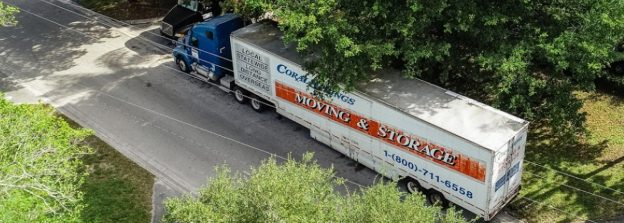Florida has historically been one of the most popular relocation destinations in the United States. From retirees seeking sunshine to professionals pursuing new opportunities, the state continues to attract residents from across the country. As 2026 approaches, many out-of-state movers are asking an important question: is now the right time to relocate to Florida?
The answer depends on several factors, including housing trends, economic conditions, lifestyle considerations, and personal priorities. Understanding how these elements are shaping Florida in 2026 can help you decide whether this move aligns with your goals.
Florida’s Population Growth: What It Means for Movers
Florida’s steady population growth shows no signs of slowing. Domestic migration to the Sunshine State remains strong, with new residents arriving from the Northeast, Midwest, and West Coast. This influx continues to influence everything from housing demand to infrastructure development.
For movers, population growth creates both opportunities and challenges. On one hand, expanding communities mean new neighborhoods, improved amenities, and increased job opportunities. On the other hand, higher demand can translate into competitive housing markets and busier moving seasons. Planning ahead and understanding local conditions are especially important for those relocating from out of state.
Housing Market Trends in 2026
The Florida housing market has been adjusting after several years of rapid price increases. By 2026, many regions are experiencing a more balanced environment, with increased inventory in some areas and stabilized pricing in others. While home values remain higher than pre-2020 levels, the pace of growth has generally moderated.
For buyers, this can mean more negotiating power compared to previous years. Renters may also find more options, particularly in newly developed communities and suburban areas. However, desirable coastal cities and metro hubs can still be competitive, especially during peak relocation periods.
Out-of-state movers should factor in not just purchase prices or rent, but also property taxes, insurance costs, and homeowners’ association fees. Florida’s housing expenses vary widely by region, making careful research essential before committing to a specific area.
Employment and Economic Outlook
Florida’s economy continues showing diversity and resilience in 2026. Industries such as healthcare, logistics, tourism, construction, aerospace, and technology continue to drive job growth. The state’s lack of a personal state income tax is also a major draw for professionals and business owners relocating from higher-tax states.
Remote and hybrid work arrangements are still influencing relocation decisions. Many professionals are choosing Florida for its lifestyle advantages while maintaining employment with out-of-state companies. This flexibility has expanded relocation options beyond major urban centers to smaller cities and suburban communities.
That said, wages can vary by industry and location. Movers considering Florida for career reasons should research local job markets carefully and evaluate how compensation aligns with the cost of living in their target area.
Cost of Living Considerations
Florida’s cost of living is often viewed as moderate compared to other popular states, but it is not uniform. While the absence of state income tax can offer financial relief, other expenses, such as insurance, utilities, and transportation, can offset some of those savings.
In 2026, insurance costs remain a key consideration, particularly for homeowners in coastal or storm-prone regions. Utilities may also be higher due to air conditioning needs during warmer months. Everyday expenses like groceries and fuel are generally in line with national averages, though they can be higher in popular tourist areas.
Understanding how these costs balance out in your chosen city or region is an important step in determining whether a Florida move makes financial sense.
Climate, Weather, and Lifestyle Factors
Florida’s climate continues to be one of its strongest attractions. Warm temperatures, mild winters, and abundant sunshine appeal to those looking to escape colder climates. Outdoor activities such as boating, golf, fishing, and beach recreation are accessible year-round in many parts of the state.
However, climate considerations go beyond sunshine. Hurricane season, humidity, and intense summer heat are realities that new residents must prepare for. Advances in building codes, infrastructure planning, and emergency response have improved resilience, but personal preparedness remains essential.
Lifestyle preferences also play a major role. Florida offers a wide range of living environments, from vibrant urban centers to quiet suburban neighborhoods and laid-back coastal towns. Choosing the right fit depends on factors such as commute preferences, school districts, healthcare access, and community amenities.
Infrastructure and Community Development
Ongoing investment in infrastructure is shaping Florida’s future. Transportation improvements, expanded healthcare facilities, and new residential developments are helping communities accommodate the continued growth. Many cities are focusing on walkability, mixed-use developments, and green spaces to enhance quality of life.
For out-of-state movers, these developments can make the transition smoother by providing modern housing options and improved services. At the same time, construction activity can temporarily affect traffic patterns and neighborhood dynamics, making local insight valuable during the planning process.
Timing Your Move in 2026
Timing remains an important factor when relocating to Florida. Peak moving seasons typically occur in spring and summer, coinciding with school schedules and favorable weather in other parts of the country. These periods can be busier and require more planning.
Fall and winter moves may offer greater flexibility and less competition, particularly for out-of-state relocations. Weather conditions are also milder during these months, which can make the physical aspects of moving more manageable. Understanding seasonal trends can help movers choose a timeline that aligns with both availability and personal comfort.
Is 2026 the Right Time for You?
Ultimately, whether 2026 is the right time to relocate to Florida depends on your individual circumstances. Stable housing conditions, a diverse economy, and continued infrastructure investment make the state an appealing option for many. At the same time, careful planning is essential to navigate costs, climate considerations, and regional differences.
For those seeking a warm climate, lifestyle flexibility, and long-term opportunities, Florida continues to stand out as a compelling destination. Evaluating your financial goals, career plans, and preferred way of life will help determine if this is the right moment to make the move.
Planning Your Florida Relocation with Confidence
Relocating from out of state involves many moving parts, from logistics and timelines to packing, transportation, and storage needs. Working with an experienced moving company that understands Florida’s unique challenges and opportunities can make the transition significantly smoother.
Coral Springs Moving & Storage has supported relocations throughout Florida for decades, helping people navigate every stage of the moving process. When you’re ready to take the next step toward a Florida move in 2026, partnering with a team that brings experience, organization, and local insight can provide peace of mind from start to finish. Request a free quote online or call us today to learn more!










